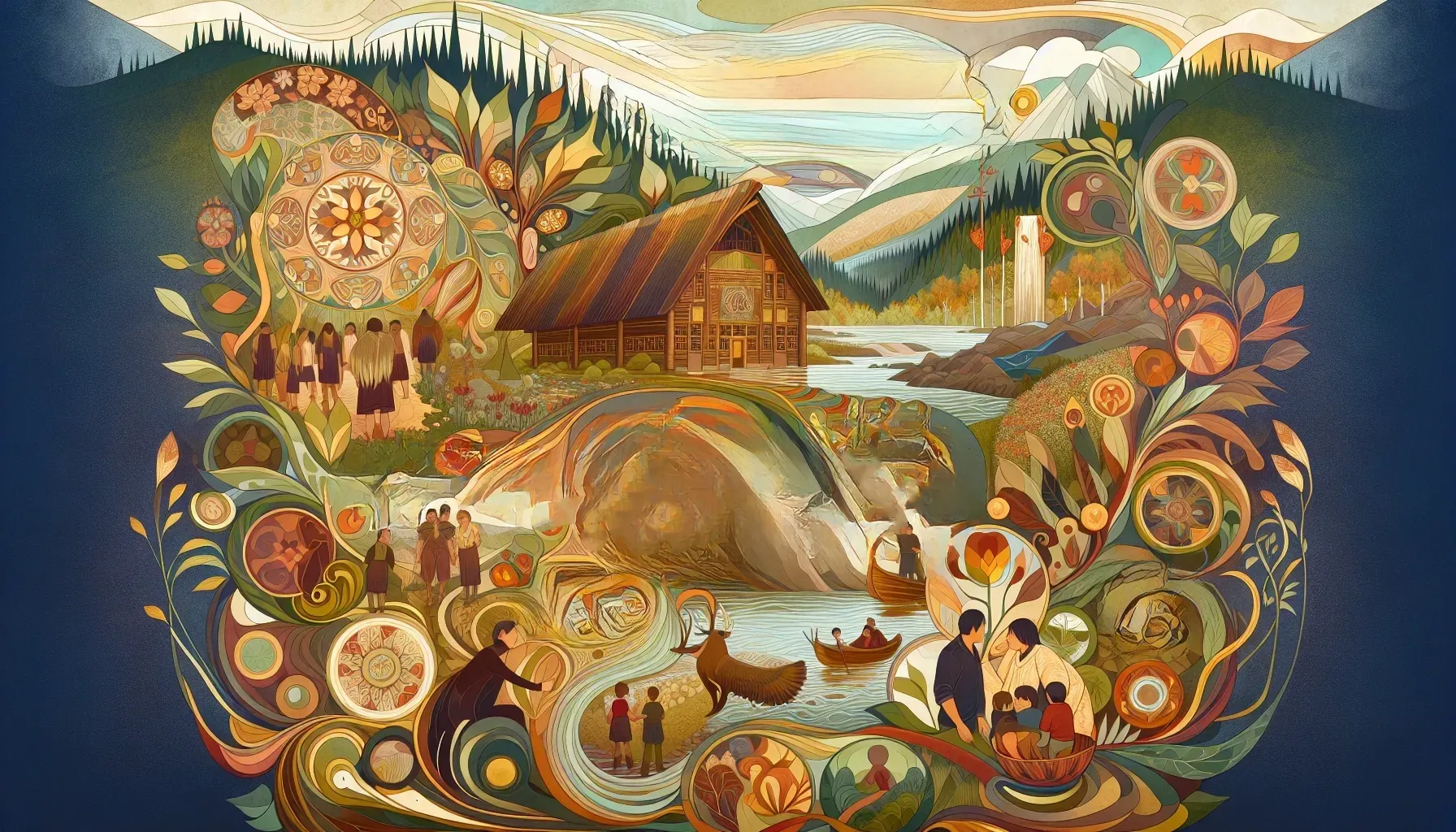Illuminating Cultural Wisdom: Parenting Pearls from Indigenous Communities Around the Globe

Parenting is a profound journey, encompassing diverse traditions and practices that have withstood the test of time. From the frost-kissed lands of the Arctic to the sun-drenched terrains of Africa, indigenous communities offer invaluable insights into nurturing and raising resilient, empathetic, and culturally-rooted individuals. Let's delve into the enriching parenting pearls from these communities that transcend geographical boundaries.
In many indigenous societies, the rearing of a child is a communal effort. The saying "it takes a village to raise a child" is embodied in their collective approach to parenting. All members of the community, irrespective of biological relation, participate in instilling values and skills in the young. This shared responsibility fosters a deep sense of belonging and interdependence, laying a strong foundation for children to thrive within a supportive network.
The Village Concept of Childrearing in Indigenous Cultures
Indigenous families seamlessly integrate environmental awareness into everyday life. Children are taught to view nature as an extension of themselves, cultivating a profound respect for the natural world. Through practical teachings, stories, and rituals, they develop a harmonious relationship with the environment. This instills a deep sense of responsibility towards preserving ecological balance and sustainability, essential values for future guardians of our planet.
Nurturing Environmental Stewardship in Indigenous Families
Storytelling is an integral part of indigenous cultures, serving as a powerful tool for transmitting knowledge, moral values, and cultural heritage. Through oral traditions, children learn about their ancestry, traditional practices, and ethical lessons. Stories not only entertain but also impart wisdom, encourage critical thinking, and nurture imagination while preserving age-old customs and beliefs.
Respect for elders, peers, nature, and oneself is fundamental in indigenous parenting philosophies. Children are raised to appreciate diversity and value each individual's contribution to the community. They learn through observation and participation in communal activities, fostering empathy and understanding towards others. Responsibility is instilled through practical involvement in daily chores and communal tasks, laying the groundwork for accountable citizenship within their societies.
The Role of Storytelling in Indigenous Parenting
Elders play a pivotal role in shaping the lives of children in indigenous communities. Their accumulated wisdom serves as a guiding light for holistic child development. Through storytelling sessions, mentorship, and hands-on experiences, elders foster intergenerational connections while imparting traditional knowledge that enriches children’s perspectives on life and culture.
Key Values Taught in Indigenous Societies
Indigenous parenting emphasizes resilience as children navigate life's challenges. They are encouraged to embrace change with fortitude and adaptability. Traditional teachings imbue them with emotional strength and resourcefulness, enabling them to confront adversity with courage and perseverance an invaluable attribute that shapes their character and equips them for an ever-changing world.
Related Article: Harmony in Hierarchy: Understanding Confucian Influences on East Asian Parenting Techniques
The Role of Elders in Child Development Strategies
Indigenous communities have long relied on holistic healing practices that promote overall well-being. From herbal remedies to spiritual ceremonies, these cultures integrate ancient wisdom into modern health practices for children. The holistic approach considers physical, mental, emotional, and spiritual aspects of wellness, advocating a balanced lifestyle deeply intertwined with nature.
Cultural celebrations are pivotal in reinforcing ancestral customs and identities within indigenous families. Festivals, ceremonies, and rituals not only bring joy but also serve as platforms for passing down cultural heritage to younger generations. Children actively participate in these events, fostering pride in their heritage and providing opportunities to nurture a sense of community belonging.
Fostering Resilience and Adaptability in Children
Through embracing the parenting pearls from indigenous communities around the globe, we gain profound insights that transcend mere childcare; they gift us with a timeless wisdom enriching our approach to nurturing vibrant individuals within our modern societies.
Frequently Asked Questions
Cultural celebrations are essential in indigenous parenting as they reinforce ancestral customs and identities. These events provide opportunities for children to actively participate, fostering pride in their heritage and a sense of community belonging. Through festivals and rituals, children learn about their culture, ensuring that traditions are passed down through generations.
Indigenous families instill environmental stewardship by integrating nature into daily life. Children learn to view the environment as part of themselves, developing respect for the natural world through stories, rituals, and practical teachings. This approach fosters a sense of responsibility towards ecological balance, preparing them to be future guardians of the planet.
Storytelling is vital in indigenous parenting as it serves as a powerful educational tool. Through oral traditions, children learn about their ancestry, moral values, and cultural heritage. These stories not only entertain but also encourage critical thinking and imagination while preserving age-old customs and beliefs that shape their understanding of the world.
Check Out These Related Articles

The Universal Language of Parenthood: Uniting Families Across Continents

Raising Global Citizens: Fostering Ethical Values in Children Across the World

Navigating the Landscape: How Global Policies Are Sculpting the Future of Parenthood

